Commentary
Q&A with Wykeland’s Dominic Gibbons
Wykeland Group was founded in 1969, with Dominic Gibbons taking over as managing director in 2008 of what remains a family-owned and management-run organisation.
Wykeland has a strong portfolio of major assets, including the Melton West and Bridgehead business parks, west of Hull, and the 110-acre Europarc in Grimsby, but has also become known for taking on challenging city and town centre projects, at a time when others are backing off.
Place Yorkshire spoke to Gibbons about the outlook for the high street and how Wykeland is delivering across the property spectrum.
You’re investing in and around Whitefriargate in Hull, and you’ve delivered a big retail and leisure project in Beverley – how do you see the landscape of city and town centres in what’s been a tough time?
We believe there is a bright future for the high street, but it has to be different to what’s gone before. It’s about independents, it’s about shorter leases, it’s about sensible rents and it’s about patient capital – long-term income return, not capital churn.
Much of what we do in our city and town centre developments is about staying involved and staying close to tenants, seeing them as partners and collaborators rather than having a distant landlord/tenant relationship. We have people specifically working on events programmes, working closely with tenants, in Hull’s Fruit Market and at Flemingate in Beverley.
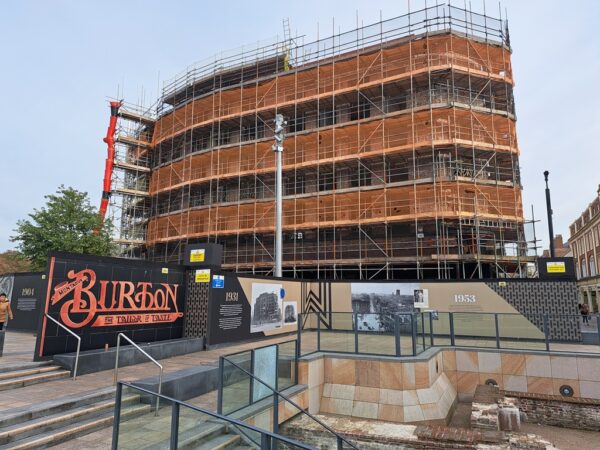
The Burton building is a key Whitefriargate project. Credit: Place North
At the Fruit Market, we’ve always had a rolling programme of ad hoc pop-ups, but we will now have a permanent space for them in a building we’ve just refurbished – this will house film shows, gallery exhibitions, comedy and so on.
We’ve learnt as we go – when we started putting events on at our Stage @TheDock amphitheatre in the Fruit Market in 2016, we used a property management set-up, but it’s a completely different skillset, and we’ve now brought in someone who has worked in theatre for many years to curate the amphitheatre as well as pop-ups and events around the Fruit Market.
So it’s a more customer-focused thing than property companies might traditionally have been used to?
Nowadays, you can’t afford to wait for deals to come in and simply assume footfall will happen, you’ve got to create events and constantly give people reasons to come and visit. Cultural organisations and the work they do are really important to us – we spend a lot of time and money supporting culture because it’s such a huge economic driver.
Everywhere in the world, you’ll see intelligent cities backing capital arts programmes and providing revenue support for artists and venues, because there’s a global race for talent, investment, jobs and tourism.
Hull City Council are very supportive of culture, they haven’t reduced their cultural budget since 2017 City of Culture year, and East Riding of Yorkshire Council are the same – they see the benefits. The whole funding matrix for culture is changing and regenerations have their part to play.
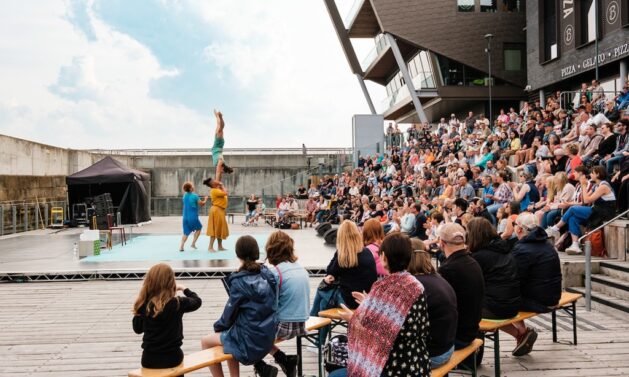
The Stage @TheDock has been a major driver of footfall. Credit: via Meehan Media
Wykeland have supported over 40 cultural organisations over the past few years. Most recently we have worked with a local theatre company helping create an initial three-year writers’ festival, based in the Fruit Market, as a year-round project aiming to develop more skills in the region.
Community projects are vital too – at most of our developments we work with primary schools and deliver much more than just a standard hard-hat, “this is what such a job does” look-round. There are opportunities to learn about entrepreneurship and culture. We’ll spend £30,000 to £40,000 a year on these projects, on top of staff time invested in numerous projects and organisations.
How are the various projects progressing?
In Northallerton, where we’ve redeveloped a 230-year old prison, we’re now in the process of letting the final restaurant units, and there’s an independent restaurant in the old Governor’s House. The main prison blocks are now occupied by the Centre for Digital Innovation (C4DI) digital hub and digital education “eCampus”. On the retail side, we’ve delivered a Lidl and an Iceland.
The final phase features an Everyman cinema, which opened this summer and is a fantastic brand to work with, a really good quality offer. Again, arts have been a key aspect of this project – we’ve worked with the arts charity, Rural Arts, with our backing match-funded by Hambledon Council, as it then was, on a school engagement project called Imaginosity.
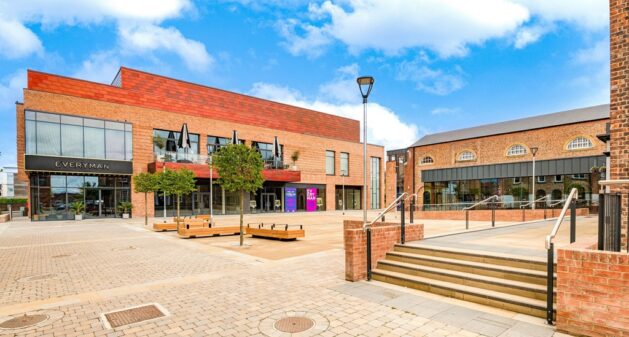
Treadmills has been a success in Northallerton. Credit: The Harris Partnership
Flemingate in Beverley is a mixed-use scheme where you can track how the retail landscape has changed – the original anchor was Debenhams, now it’s Dunelm, while Sports Direct has also come in as a major occupier, replacing Outfit.
We started planning in 2005 and began the delivery with 130 residential units in 2011. The scheme as a whole is 225,000 sq ft of retail and leisure, including Parkway Cinema, Premier Inn, and a 70,000 sq ft college, all of which opened in 2015, with extensive new public realm.
The retail is fully let, apart from the Wilko store, which has just closed, but a new tenant is in legals.
With Whitefriargate in Hull, we’ve been building up our holdings on this once-prime retail street to 130,000 sq ft since the pandemic started, which includes the former M&S, Littlewoods and Burton buildings. The Burton building is now undergoing a considerable redevelopment, with support of the Levelling Up Fund and Heritage Action Zone. We’re working in collaboration with the Hull Trinity House trust, which owns the other side of Whitefriargate, as we look to improve what’s a really important area for Hull.
A number of the buildings are listed, so none of this will be easy, and we’ll look to retain and improve what we can – much like we’ve done with places like Humber Street in the Fruit Market, which has a fascinating mix of pre- and post-war buildings we’ve been able to work with, all of which ties in well with the residential development delivered in partnership with our regeneration partners in the Fruit Market, Beal Homes.
What does Hull and the wider Humber need in order to realise its potential? How does what you’re doing link in with the present government’s policies and priorities?
We’re very supportive of the efforts by Hull and East Yorkshire to gain a Mayoral devolution deal with government. As part of that, having a Mayor able to bang the drum for Hull and East Yorkshire, as other Metro Mayors do for their regions, is something we’re keen to see.
Transport issues are significant here as elsewhere, but if anything the recent HS2 news was positively received here, because, for us, HS3, improving connectivity between the Northern cities, is the main prize – that bottleneck between Manchester and Leeds is such an issue, and solving it will bring Hull and East Yorkshire better connections to Manchester Airport, Manchester and Liverpool etc.
Do that and you make the North a lot smaller. We’re very keen on being part of a wider Northern business community.
Our Goole site is coming forward as a Humber Freeport tax site, which is a real positive to have, but the benefits only run to September 2026 – so, in partnership with the other seven freeports, the Humber Freeport company is lobbying to get the benefits extended to the 2030s, because it’s simply not long enough to allow Freeports to be a success.
If you look at something like the Metsä Tissue factory coming to our site in Goole, which in time will be a 3.1m sq ft development, the retention of those business rates for economic development purposes in the Humber region is considerable, with the benefits spreading right across the Humber region.
With Amazon recently announced, Melton West seems to have huge potential. Could its prospects be improved further?
At Melton West we commence on site with an 84,000 sq ft speculative industrial scheme in Q1 2024 which comprises a 37,000 sq ft unit, a 22,000 sq ft unit and five units of around 5,000 sq ft. We have a further 34 acres remaining, with strong interest.
Development is very challenging at the moment and everyone’s in the same boat. Costs have risen exponentially, with interest rates and the other well-publicised issues. In 30 years in the industry, I’ve never seen cost increases as they have been over the past 36 months.
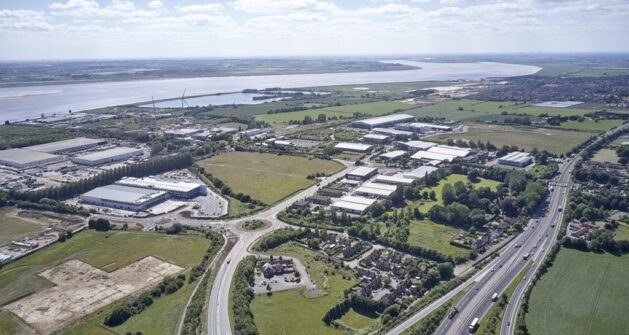
Melton West has Enterprise Zone status. Credit: via Meehan Media
The 2.1m sq ft Amazon facility will be on site in late November and, hopefully, the 300,000 sq ft Smith & Nephew office, R&D, manufacturing and warehousing facility will be on site by late 2024.
Smith & Nephew is an important indigenous Hull business and they are relocating from a site in the city which had grown in a piecemeal way over decades and become outdated. They decided they needed to invest in a modern, purpose-built facility – it was either locally, or in Malaysia – so it’s great news they are staying here, moving just seven miles, and will continue to provide jobs for the local economy.
There is potential for a parkway railway station. There’s around 1,500 people working on site now, but that will become 5,000 in the near future, and there is the ability there to have a “park and rail” facility, which will help cut emissions from car trips into the city centre. Melton West has Enterprise Zone status, too.
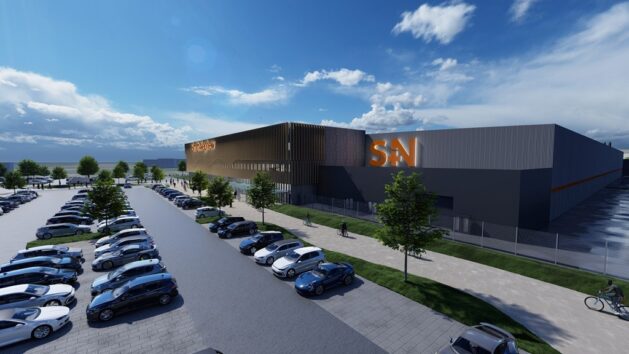
Securing Smith & Nephew for the area is a major win. Credit: S+N.
What might 2024 hold for Wykeland?
We don’t have any debt, and we have an unused revolving credit facility, so feel we are in a good position to look for new opportunities.
We‘ve just bought the Waterside shopping centre in Lincoln in partnership with the Lincolnshire Co-operative, a project that sits next to a great regeneration scheme the Co-op have collaboratively delivered with Lincoln City Council called the Cornhill Quarter.
The value of assets on the high street has to be rebalanced. There’s opportunity, but it has to be based on providing experiences – we’re social animals.



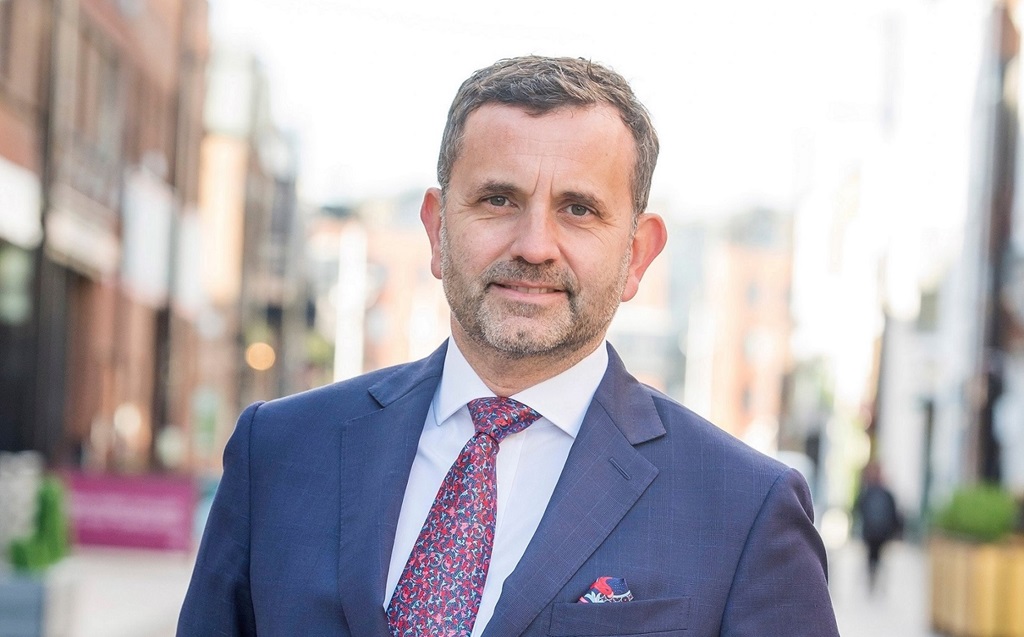
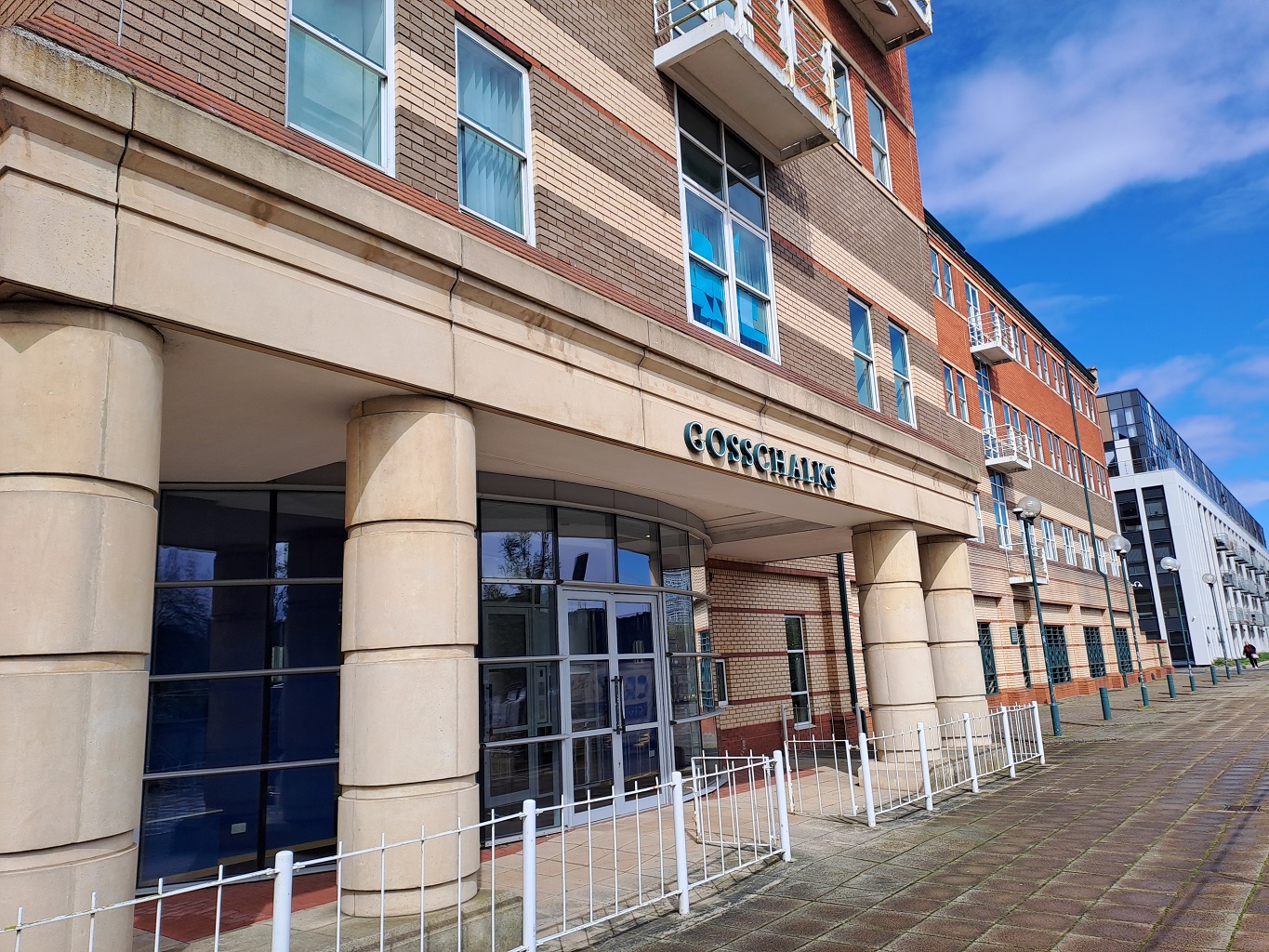
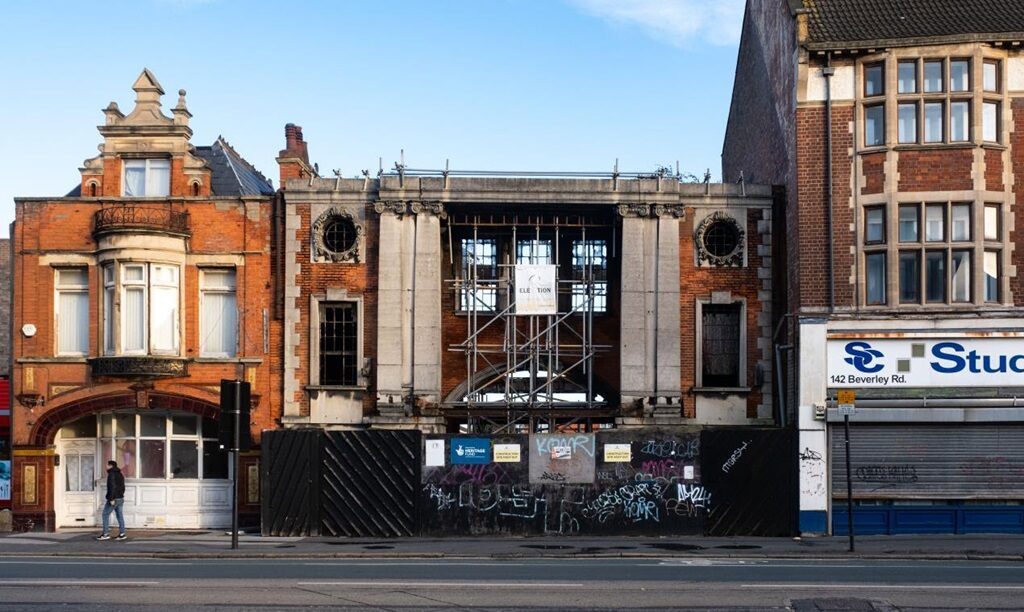
Good for them, I look forward to seeing what they do with Whitefriargate, it’s a shadow of its former self.
By EYORKS